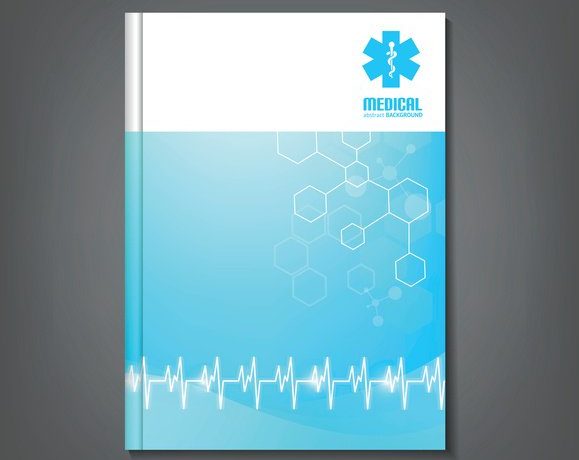medical journals
Top Journals that Matter to Primary Care Physicians

Never before have more words been so readily available.
With the click of a keyboard or the swipe of a smartphone screen, primary care physicians put their hands on a seemingly unlimited amount of information.
Blogs, magazines and online aggregators offer around-the-clock access to research, breaking news and human interest stories.
But should physicians really be getting their news about research from websites run by 24-hour cable networks?
The problem with having so much information immediately available is that it can be difficult to measure the quality of the words. That’s why many primary care physicians are eschewing online information sources in favor of tried and true, peer reviewed, accurate and ethical medical journals, which have been delivering trusted news about research, trends and treatments for centuries.
Here’s a look at the top journals that matter the most to primary care physicians:
New England Journal of Medicine (NEJM)
The name and the acronym are synonymous with excellence. It’s by far the most well-respected and well-read general medicine journal available. Research covers all medical specialties, and all of the 5,000 article submissions the journal receives each year that actually get published go through an extensive peer review process, revisions and a statistical review.
In short, the NEJM is a journal primary care physicians simply must read if they want to stay abreast of emerging trends, research and discoveries.
Journal of Primary Care & Community Health
Primary care physicians are on the front lines of addressing public health concerns, and the Journal of Primary Care & Community Health is right there with them. The quarterly journal, which is currently transitioning to an open access format, offers peer-reviewed articles about the practice, impact and outcomes of community health programs.
It’s a great tool and a must-read journal for physicians who are interested in bridging the gap between medicine and public health at a grass-roots level.
Nature
Science waits for no one. That’s why it is imperative that primary care physicians read Nature, a medical journal that publishes weekly and features the latest findings in science research. Nature is one of the most difficult journals in which to be published, and it covers topics ranging from chemistry to evolution.
Many, if not all, of the top medical journalists in the country rely heavily on Nature for story ideas. So if you want to know what your patients are likely to be hearing (and have the real story for yourself), read Nature.
The Journal of the American Medical Association (JAMA)
With more than 1.2 million people receiving its table of contents via email, no other medical journal is as widely circulated. JAMA is a journal comprised of the top articles from the American Medical Association’s other journals, including JAMA Cardiology, JAMA Dermatology, JAMA Pediatrics and JAMA Psychiatry. In other words, its the perfect news aggregator for primary care physicians.
Read JAMA and sign up to have its table of contents delivered to your email inbox for free.
American Family Physician
Published by the American Academy of Family Physicians, AFP includes articles from clinicians with the experience and wisdom to provide proven advice to their peers. The editors strive to find articles that provide a family medicine perspective and approaches to common clinical conditions.
American Family Physician is what you want to read if you’re looking for practical wisdom that actually applies to your day-to-day practice of medicine.
Annals of Medicine
For those interested in research, there is the Annals of Medicine. It’s delivers rapid publication of the latest peer-reviewed research related to medicine, from the bench to the bedside and back again.
—
If you are interested in reading blogs like this one to supplement your journal reading, feel free to subscribe.
![]()
Physicians: Are Medical Journals Still Relevant?
Many physicians have asked are medical journals still relevant. Advances in technology have meant that information is disseminated more broadly and isn’t just localized in medical journals anymore. What’s more, some medical journals have been sources of scandal, when it’s turned out that their information wasn’t as meticulously reviewed as they claimed.
As an up-and-coming medical professional, read on to learn about if it’s worth your while to subscribe to and keep up with medical journals.
The Advantage of Peer-Reviewed Journals
First, it’s important to point out that most academic journals aren’t like other media. Unlike blog posts, newspaper articles and so forth, a journal is peer-reviewed and therefore held to a stringent factual standard. If you have any questions, it’s generally best to seek out a peer-reviewed journal first.
That being said, not all journals are held to the same stringent standards, and there have been recent controversies about academic and medical journals that are very free about what they publish. Always check a journal’s credentials before you take it seriously, and look at factors like the size of a study, and who funded it.
Don’t (Necessarily) Trust Vendors
One issue that’s received increased attention from patient advocacy groups in recent years has been the power that representatives from drug and device companies have over physicians. It’s no mystery that especially for some specialties of medicine, doctors get plenty of freebies from companies and their representatives. Advocacy groups usually focus on things like vacations, fancy dinners and so forth, but it’s much more common that physicians receive information about the drug from the representative. While this doesn’t have the glamour of a trip to Tahiti, it can do just as good of a job of encouraging a busy doctor to prescribe the company’s drug or device.
Obviously, the FDA wouldn’t allow a drug to be put on the market if it weren’t safe. But especially if you’re considering off-label uses for a medication, or you aren’t sure if it’ll benefit your patients, it’s a good idea to get information from a source you know is unbiased. Going to a peer-reviewed medical journal for information about drug trials and other data will give you much more reliable information than you’d get by going off the company’s word alone.
Your Field Matters
Consider your field carefully when deciding if you need to subscribe to a medical journal. If you’re in a cutting-edge field where you need to keep up with current developments, then you may need to maintain a subscription to one or more major general journals.
But if you’re in a field where you work based on an established, time-tested basis of medical knowledge (such as many general practitioners), you may not need to keep up a subscription to a journal. If you have a patient with special needs, or if there’s some new and pressing medical development, then you can simply purchase articles as needed (or as you’re curious) through many online vendors.
Conclusion
Not all physicians need to keep up a subscription to a medical journal, these days. There’s plenty of information freely available online. However, depending on your scope of practice, you may be more interested in following developments in medical journals than other practitioners are.
Finally, if you ever find yourself in need of a specific piece of knowledge, don’t forget that you can buy individual articles online, as needed, without purchasing a whole journal. By keeping abreast of developments in your subfield generally, you can make determinations about what individual articles you need to read, rather than bogging yourself down with reading all relevant journals.
—
What are your thoughts on medical journals and their relevance to modern physicians? Send us a note!
![]()






Recent Comments